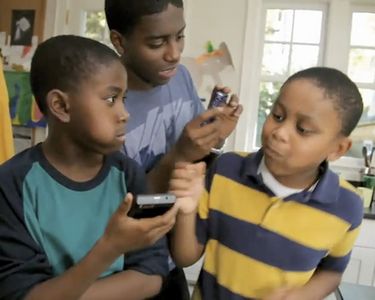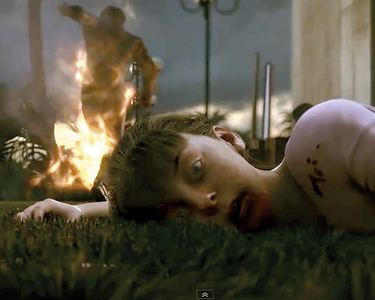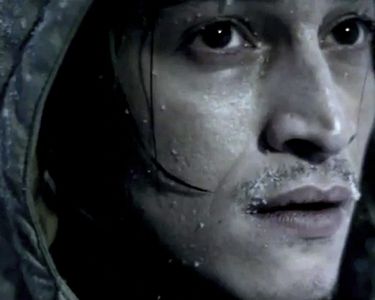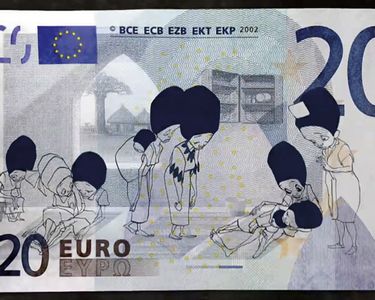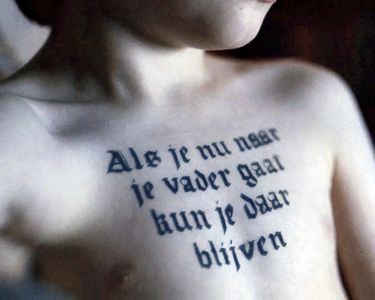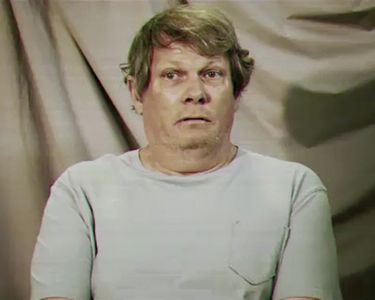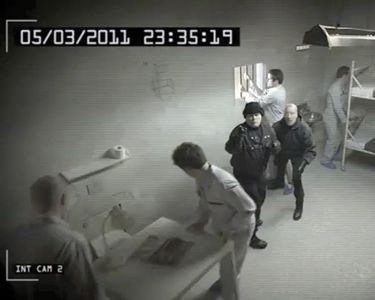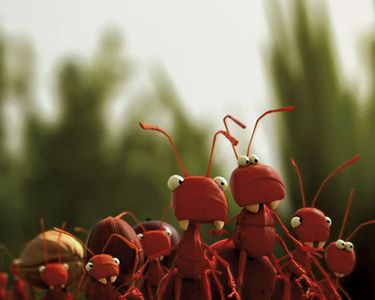Chris Clarke, our juror for this issue's selection of outstanding digital work, is Chief Creative Officer at LBi. Having held this position since September 2008, he is responsible for the creative output of the network and its 600+ creative staff in 14 countries. Chris loves to stay close to the work, developing creative ideas with teams across the network for clients as diverse as Coke, Peroni, Electrolux, Hendrick's Gin, and Virgin Atlantic. Like most people who've been doing this for a while, Chris stumbled into the digital industry in the late 90s. As a copywriter, he made it his mission to bring the craft of ideas to digital marketing, an ambition realized at pioneering Swedish digital advertising agency Abel & Baker and, later, at Wheel, where he became Executive Creative Director. Chris came to LBi from Publicis-owned Digitas, where he was President and Executive Creative Director of the UK agency following a stint as European Executive Creative Director for Modem Media, a Digitas company. Over the years, Chris has picked up the usual awards, and is now a regular on the judging and speaking circuit. Chris professes to be "on a mission to change marketing into a discipline valued for its contribution to people's lives rather than one derided for making a noise." This is outlined in his Building Believable Brands positioning for LBi.
L.A.: Hi Chris, can you tell us a bit about LBi?
Chris Clarke: We're a marketing and technology agency with a unique way of developing big creative thinking and innovative technology for clients. We call it blending, and it's a collaborative way of bringing diverse talents together to solve clients' problems. LBi has existed as a name for four years, since the current management team took over to make a coherent, creatively focused agency from a legacy of mergers. Some of the companies which became LBi are: Lost Boys, Icon Medialab, Framfab, Oyster, Wheel, and recently Bigmouthmedia. LBi stands for Lost Boys international after the founding Dutch agency, which goes back to 1994.
L.A.: Your bio says that you stumbled into the digital industry in the late 90s. How did that "stumbling" come about?
Chris Clarke: I tripped over some copywriting, stubbed my toe on video production, and ended up in a Swedish dotcom called Wideyes. I was part of an in-house agency set up, I think, to burn investor cash.
L.A.: Where did you grow up, and what was your childhood and adolescence like? What were your interested in?
Chris Clarke: I grew up in the mean lanes of the Chiltern Hills. It was great, I could get lost in the woods as a child and then, by the time the rave scene kicked off in my teens, I could lose myself in a different way in London – a forty-five-minute train ride away. I was always interested in poetry, myths, and storytelling. I think you can learn more from Keats than you can at ad school.
L.A.: What were you trained as? A copywriter at a traditional ad agency?
Chris Clarke: I trained as a copywriter but am self-taught really. I never went to ad school. I did an academic degree – English Lit. After four years of study, including a year in Athens studying Byron, I couldn't afford to do more school. Luckily, a singleton art director invited me to join on a freelance gig and I got started. The lucky break was digital – you could make it up as you went along in those days.
L.A.: Who are some of the people you were inspired by when you were a student?
Chris Clarke: Mainly poets; Keats, Shelley, Byron, MacNeice, Larkin. I was always pretty impressed by James Lavelle, the man behind Mo' Wax records. He was 19 at the time and curated an incredible sound, packaged beautifully. It was an aural and visual aesthetic. He also set Louis MacNeice's "Snow" to music with Palm Skin productions.
L.A.: Were you interested in advertising before you got into communications? Any ads you remember from that early time?
Chris Clarke: I was, and obviously grew up to the backdrop of the great 80s TV ads, Heineken "The Water in Majorca," the great B&H ads, Silk Cut in print, Leonard Rossiter doing Cinzano. It was all fags and booze. No wonder we all grew up to be reprobates.
L.A.: When and how did you first get interested in digital?
Chris Clarke: See above. I'm half Swedish, and the digital scene in Stockholm was incredible in the late 90s. After the dotcom went bust, I was lucky enough to get a job with Abel & Baker, a pioneering digital shop. They were all about classic advertising skills applied to digital. Most other agencies then were web design shops. Abel and Baker was interested in ideas but embraced technology. The developers there were geniuses. Two of the people I worked with at that time are now senior creatives in our New York office.
L.A.: How has the digital arena changed since you first got into it? There must have been huge developments since then.
Chris Clarke: The main difference now is that the platforms are all built. In the old days, if we wanted to distribute a video we had to build the means of distribution. All the energy went into making these microsites. Now, with Facebook and YouTube, you can concentrate on the content. That's a huge plus, but what I miss is the anarchy. We really were just blagging it, It was invigorating and a huge privilege to create an industry from scratch.
L.A.: Can you tell us a bit about what you think have been positive and what were negative developments up until now? Are there any not-so-fortunate trends you're observing, now that everyone seems to be jumping on that bandwagon?
Chris Clarke: Building on the last point, it's such a big business now so, sometimes, it all feels a bit serious. I think the bandwagon now is obviously social media. I think it's great that entrepreneurs have been able to set up specialist shops and are making insane money selling them for huge multiples. Good for them. But in most cases the proposition is smoke and mirrors. We'll see these startups integrated into bigger agencies and the noise will die down. Hopefully, soon we'll see the death of the social media guru as well, and we'll have less bullshit flying round the system and more people doing stuff. You have to be suspicious of someone who can tweet and blog constantly during billable hours.
L.A.: Are there people in the digital field whose work you particularly admire?
Chris Clarke: I pretty much admire all the great Fellows of Creative Social. We've grown up together and they're a constant source of inspiration and hangovers.
L.A.: What are the projects you've been most proud of since you became responsible for LBi's creative output?
Chris Clarke: I love the work we do for Puma via our integrated shop Syrup. Our Amsterdam office have done great stuff for Mitsubishi, and recently attached heart monitors to X Factor contestants, which was pretty cool. Our Infi-knit for Macmillan Cancer Care was great. We also do some pretty innovative stuff for Lloyds TSB, where we're designing the future of online banking, literally helping them create new businesses. I think our best stuff is yet to come, with recent wins for Coke, Peroni and Sony Ericsson all bubbling in the background.
L.A.: Can you make any predictions about web-based communication in the near future?
Chris Clarke: No. Suffice to say it will be more mobile and it will work better. Our CTO Lorenzo Wood talks about "flow": how we will all expect multichannel, multi-device experiences to integrate seamlessly. Other than that, predictions are pointless. It's far better to organize your agency to cope with change, and blend a diverse and constantly evolving set of skills.
L.A.: How do you see the role of social media in brand communication today? Is it for everyone and for every brand?
Chris Clarke: To some extent, yes. Most of our real-life decisions are social. I do agree with Sheryl Sandberg (COO of Facebook) that we are moving away from the query-based, purpose-driven "information web" towards a more immersive, anecdotal and quixotic experience. The question is not "What are you looking for?" but, rather, "How are you?" The technology is simply catching up with the way we're wired as humans.
L.A.: What, in your opinion, is the biggest challenge facing a traditional agency trying to adapt to the new digital world?
Chris Clarke: Blending. They really struggle. When your culture places a deliberate hierarchy in place with the ECD at the top and anyone with a computer is a "Mac Monkey" and anyone who talks to clients is "a suit," you will fail to really grasp how technology and storytelling come together. I think we're more like Pixar at LBi than we are like Saatchi & Saatchi. The traditional agencies need to wake up to the world outside of cozy conservative, retrogressive little "Adland" in Soho.
L.A.: Do you think there will be a role for print advertising in the future?
Chris Clarke: Of course.
L.A.: Can you elaborate on this mission of yours to change marketing into a discipline valued for its contribution to people's lives rather than one derided for making a noise? And how far along this way has marketing come in the past few years?
Chris Clarke: I think there's been a massive change. Corporate social responsibility is being absorbed into brand strategy. But where this has happened it's often because the CEO thinks that way. I think many marketing directors struggle to unify the politics internally, to innovate, quite often because they don't have the influence to do so, sometimes because they'd just rather be off shooting TV ads. If marketing doesn't integrate into business and product strategy, it will only be responsible for putting messages out there, and that's not enough to really influence where a business goes. As the space for those messages constricts, companies have to reach their customers with brand messages that are embedded into services and the products themselves. The brand and the product or service become indistinguishable. Marketing directors really need partners which can help them speak to IT, to sales, to engineering. We're getting good at that as an agency. It's where our remit moves way beyond messaging and making cool stuff for people to talk about, and stretches into organizational change and business building. Management consultancies do that, but it's all theory. There's a place in the world for people who can think and do.
L.A.: You've sat on many international juries. In what way is it different to judge work created for the web as opposed to print and film, or is the only difference that it must be vastly more time-consuming to judge digital than traditional media?
Chris Clarke: That is the biggest issue. If you're trying to judge an "always on" engagement program, it's hard not to judge the two-minute video made for the award show. I think for that reason a lot of the best work, work which is more meaningful than a stunt, gets missed.
L.A.: Where do you get your inspiration, your ideas from? How do you feed your creativity?
Chris Clarke: Some of it is in the sites I reviewed. I always tell people to look outside of the industry and the people they follow on Twitter to get inspired. There's a real danger with social media that we become trapped in a cabal of violent agreement. We're all just nodding at each other. Maybe follow some fascists or communist revolutionaries just for a change of perspective. Better than anything, though, is to read poetry. It trains you to condense information, to deliver emotional impact and to decode symbols.
L.A.: What is your attitude towards advertising awards?
Chris Clarke: Somebody recently said to people outside the industry they're like a "Greatest Dad in the World" T-shirt. There's probably some truth in that.
L.A.: You have kindly selected for us the digital work you consider to be the most interesting at this moment. Can you tell us about your criteria for inclusion?
Chris Clarke: I didn't want to just put ad-vertising in there. I chose stuff that's useful to me on a regular basis, as well as a few standout examples of more advertising-driven stuff. Some of the sites I chose are quite badly designed. So much of the web is. I was reflecting recently on how most Google searches end at an ugly site. I hate that it's like that, but it is. So some are there because, like Poemhunter, they serve a specific purpose, some like spitalfieldslife get it all right.
